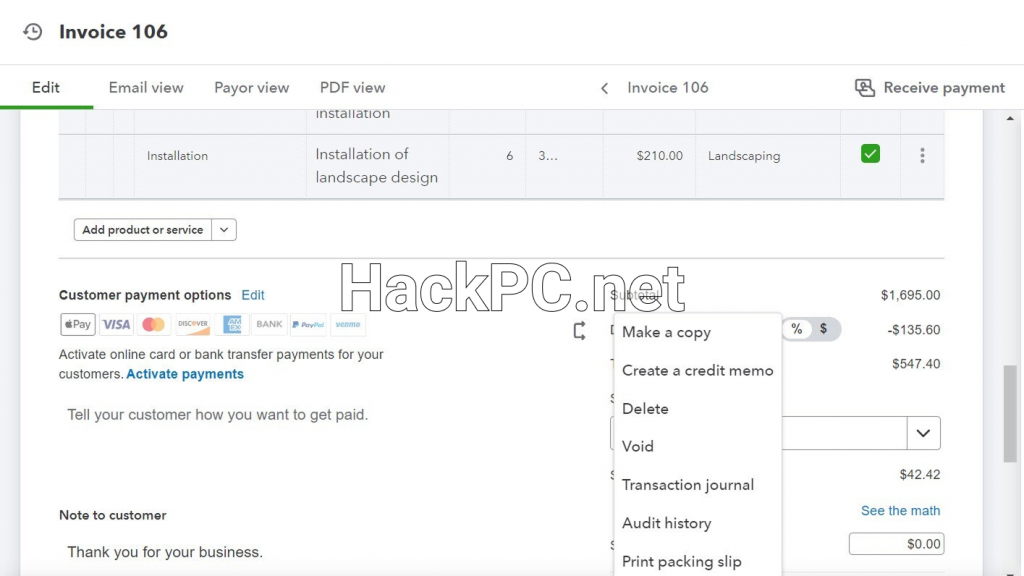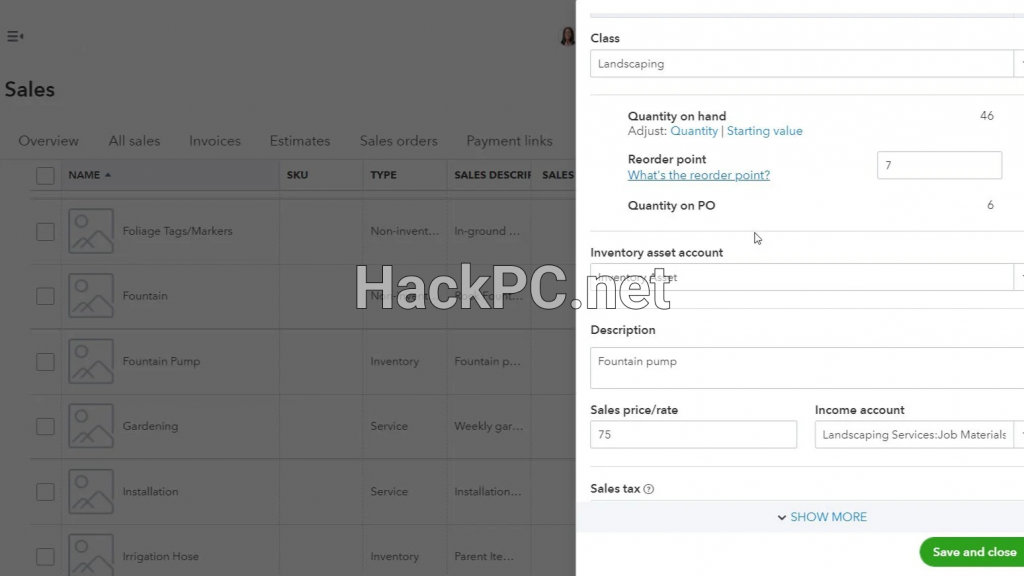
Managing your business finances doesn’t have to be overwhelming. QuickBooks Online has revolutionized cloud accounting software for millions of small business owners, freelancers, and entrepreneurs worldwide. This comprehensive guide will walk you through mastering this powerful financial management platform while avoiding common pitfalls that can derail your bookkeeping efforts.
Understanding QuickBooks Online: Why Your Business Needs Modern Accounting Automation
QuickBooks Online transforms traditional bookkeeping into an efficient, automated process that saves time and reduces errors. Unlike desktop accounting software, this cloud-based solution provides real-time financial insights accessible from any device, enabling better business decisions based on current data rather than outdated spreadsheets.
The platform serves as your central financial dashboard, integrating seamlessly with over 750 business applications including PayPal, Shopify, and Square. This connectivity creates a comprehensive ecosystem for managing everything from customer invoicing to inventory management, making it indispensable for modern business operations.
Essential Setup: Building Your Financial Foundation Correctly
Creating Your Chart of Accounts Structure
Your chart of accounts forms the backbone of accurate financial reporting. QuickBooks Online provides industry-specific templates, but customization ensures your accounting system reflects your unique business model. Start by organizing your accounts into five main categories: assets, liabilities, equity, revenue, and expenses.
When setting up expense categories, think strategically about tax preparation. Create specific accounts for deductible business expenses like office supplies, professional services, and vehicle expenses. This granular approach simplifies year-end tax filing and helps identify cost-saving opportunities throughout the year.
Configuring Company Settings and Preferences
Navigate to the gear icon and access your company settings to establish crucial parameters. Set your fiscal year, tax form type, and accounting method (cash or accrual). These foundational choices impact how QuickBooks Online processes transactions and generates financial reports.
Enable sales tax tracking if applicable to your business, ensuring compliance with local regulations. The automated sales tax feature calculates rates based on customer locations, reducing manual calculation errors and saving valuable time during busy periods.
Mastering Daily Operations: Efficient Transaction Management
Streamlining Invoice Management and Accounts Receivable
Creating professional invoices strengthens your brand while accelerating payment collection. QuickBooks Online’s customizable invoice templates allow you to add your logo, adjust colors, and include payment terms that protect your cash flow. Set up recurring invoices for regular clients to automate repetitive billing tasks.
The platform’s payment reminders feature sends automatic notifications to customers with overdue invoices, maintaining professional relationships while improving collection rates. Integration with QuickBooks Payments enables customers to pay directly from invoices, reducing the average collection period from weeks to days.

Optimizing Expense Tracking and Accounts Payable
Accurate expense tracking forms the foundation of profitable business operations. Connect your business bank accounts and credit cards to enable automatic transaction downloads. QuickBooks Online’s machine learning technology learns from your categorization patterns, suggesting appropriate expense categories for future transactions.
The receipt capture feature through the mobile app eliminates paper clutter while ensuring documentation compliance. Simply photograph receipts, and the optical character recognition technology extracts vendor information, amounts, and dates automatically. This digital approach creates an audit trail that satisfies IRS recordkeeping requirements.
Bank Reconciliation: Maintaining Accurate Books
Monthly bank reconciliation prevents errors from compounding and ensures your financial reports reflect reality. QuickBooks Online simplifies this crucial process by matching downloaded bank transactions with recorded entries. Review each transaction carefully, investigating any discrepancies immediately.
Set aside time each week for transaction review rather than waiting until month-end. This proactive approach identifies issues while details remain fresh, reducing reconciliation time and improving accuracy. The reconciliation history feature provides an audit trail, demonstrating financial diligence to lenders and investors.
Advanced Features: Leveraging Powerful Automation Tools
Payroll Processing and Employee Management
QuickBooks Online Payroll automates complex calculations including federal and state taxes, reducing compliance risks. The system handles direct deposits, generates pay stubs, and files payroll taxes automatically. Time tracking integration ensures accurate payment for hourly employees while simplifying project costing for service businesses.
Configure automatic payroll runs for salaried employees, freeing time for strategic activities. The platform maintains compliance with changing regulations, automatically updating tax tables and forms. Year-end W-2 and 1099 preparation becomes effortless, with electronic filing options available for both employers and contractors.
Inventory Management for Product-Based Businesses
Track inventory levels in real-time to prevent stockouts and excess carrying costs. QuickBooks Online Plus and Advanced plans include inventory tracking features that update automatically with each sale and purchase. Set reorder points to receive alerts when stock levels drop, maintaining optimal inventory turnover.
The platform calculates cost of goods sold (COGS) using your chosen inventory valuation method (FIFO or average cost), ensuring accurate profit margins on financial statements. Integration with e-commerce platforms synchronizes online and physical inventory, preventing overselling across multiple channels.
Financial Reporting: Extracting Actionable Business Intelligence
Understanding Core Financial Statements
Generate profit and loss statements to analyze revenue trends and expense patterns. QuickBooks Online’s comparative reporting features highlight period-over-period changes, revealing seasonal patterns and growth opportunities. Customize reports by class or location to understand profitability across different business segments.
Balance sheet reports provide snapshots of your financial position, crucial for loan applications and investor presentations. The statement of cash flows reveals how money moves through your business, identifying potential cash crunches before they impact operations.
Creating Custom Reports and Financial Dashboards
Build custom reports tailored to your specific management needs. Save frequently used reports for quick access, scheduling automatic delivery to stakeholders. The report customization features allow drilling down into transaction details, supporting data-driven decision making.
QuickBooks Online’s dashboard provides real-time visualization of key performance indicators. Monitor metrics like accounts receivable aging, expense trends, and cash flow projections at a glance. Mobile access ensures you stay informed about financial performance regardless of location.
Collaboration and Multi-User Access: Working with Your Financial Team
Accountant Collaboration Features
Grant your accountant or bookkeeper secure access without sharing passwords. The accountant user type provides specialized tools for efficient collaboration while maintaining clear audit trails. Your financial advisor can make adjustments, prepare reports, and offer guidance without disrupting your daily operations.
The QuickBooks Online Accountant platform includes additional tools for professionals managing multiple clients. Features like reclassifying transactions in bulk and creating adjusting journal entries streamline month-end and year-end processes.
Managing User Permissions and Security
Implement role-based access controls to protect sensitive financial data. Assign specific permissions based on job responsibilities, allowing employees to perform necessary tasks without accessing confidential information. Regular user audits ensure former employees or contractors no longer have system access.
Enable two-factor authentication for all users, adding an extra security layer beyond passwords. QuickBooks Online’s activity log tracks all user actions, providing transparency and accountability. Regular data backups occur automatically in the cloud, protecting against data loss from hardware failures or disasters.

Common Mistakes to Avoid: Ensuring Accurate Books
Preventing Data Entry Errors
Mixing personal and business expenses creates accounting nightmares and potential tax issues. Maintain separate bank accounts and credit cards for business transactions. When personal expenses accidentally flow through business accounts, record them as owner draws or shareholder distributions rather than business expenses.
Avoid creating duplicate entries when importing transactions. QuickBooks Online’s matching feature helps identify potential duplicates, but manual review remains essential. Establish naming conventions for customers and vendors to prevent creating multiple records for the same entity.
Maintaining Consistent Workflows
Develop standardized procedures for common tasks like invoice creation and expense approval. Document these workflows for team training and consistency. Regular closing procedures at month-end prevent prior period changes that could affect filed tax returns or financial statements.
Schedule regular review meetings to analyze financial reports and identify trends. Waiting until year-end to review finances limits your ability to make corrective actions. Quarterly reviews with your accountant or financial advisor ensure you’re maximizing tax strategies and identifying growth opportunities.
Integration Ecosystem: Extending QuickBooks Online Capabilities
Payment Processing Solutions
Integrate payment processors to streamline cash collection and reduce manual data entry. Stripe integration enables online payment acceptance while automatically recording transactions. Bill.com enhances accounts payable automation with approval workflows and vendor payment options.
These integrations eliminate double entry while providing customers convenient payment methods. Automatic payment recording reduces reconciliation time and improves cash flow visibility. Transaction fees become tax-deductible business expenses, properly categorized for reporting purposes.
E-commerce and Point-of-Sale Connections
Connect your online store or retail point-of-sale system for seamless financial tracking. Platforms like WooCommerce and BigCommerce sync sales data automatically, updating inventory levels and recording revenue. This integration provides unified reporting across all sales channels.
The real-time synchronization enables accurate inventory management and prevents overselling. Sales tax calculation occurs automatically based on transaction locations, ensuring compliance across jurisdictions. Consolidated reporting reveals channel profitability, informing marketing and inventory decisions.
Optimizing for Tax Season: Year-Round Preparation Strategies
Maximizing Tax Deductions Through Proper Categorization
Properly categorized expenses ensure you claim all eligible deductions while maintaining audit defensibility. QuickBooks Online’s mileage tracking feature captures business travel for vehicle deduction calculations. The home office deduction calculator helps determine allowable deductions for remote workers.
Track meals and entertainment expenses carefully, noting business purposes and attendees. The Tax Reform Act changed deductibility rules, making accurate categorization crucial. Separate partially deductible expenses like meals from fully deductible costs like office supplies.
Generating Tax-Ready Reports
Prepare for tax filing throughout the year rather than scrambling during tax season. Generate quarterly profit and loss statements for estimated tax calculations. The transaction detail report provides supporting documentation for deductions if questioned by tax authorities.
Export reports in formats your tax preparer prefers, reducing preparation fees and filing time. QuickBooks Online’s integration with tax software like TurboTax further streamlines the filing process. Maintain digital copies of all supporting documents within QuickBooks for easy retrieval during audits.
Mobile Accounting: Managing Finances On-the-Go
The QuickBooks Online mobile app transforms your smartphone into a portable accounting department. Create and send invoices immediately after completing work, accelerating payment cycles. Approve expenses and pay bills from anywhere, maintaining business momentum during travel.
Check financial dashboards before important meetings, armed with current performance metrics. The mobile receipt capture feature ensures expense documentation even during busy conference schedules. GPS-enabled mileage tracking automatically logs business travel, maximizing vehicle deductions without manual recording.
Scaling Your QuickBooks Online Usage as Your Business Grows
Start with QuickBooks Online Simple Start for basic bookkeeping needs, upgrading as complexity increases. The seamless upgrade path preserves all historical data while unlocking advanced features. Consider QuickBooks Online Plus when you need inventory tracking or project profitability analysis.
Growing businesses benefit from QuickBooks Online Advanced’s custom fields and accelerated invoicing features. The smart reporting powered by Fathom provides deeper analytical capabilities for data-driven organizations. Workflow automation reduces manual tasks, allowing your team to focus on strategic initiatives rather than repetitive data entry.
Conclusion: Your Path to Financial Mastery
QuickBooks Online represents more than accounting software—it’s a comprehensive financial management system that grows with your business. Proper setup and consistent usage create a reliable financial foundation supporting informed decision-making and sustainable growth. The platform’s continuous updates and expanding integration ecosystem ensure your accounting system remains current with evolving business needs.
Success with QuickBooks Online requires commitment to regular maintenance and continuous learning. Invest time in understanding features relevant to your business model. Leverage available resources including QuickBooks Online tutorials, community forums, and professional advisors. Your dedication to maintaining accurate books today creates the financial clarity needed for tomorrow’s opportunities.
Transform your approach to business accounting from reactive record-keeping to proactive financial management. QuickBooks Online provides the tools—your commitment to using them correctly determines your financial success. Start implementing these strategies today, and watch your business finances transform from a source of stress to a competitive advantage.



Comments (0)